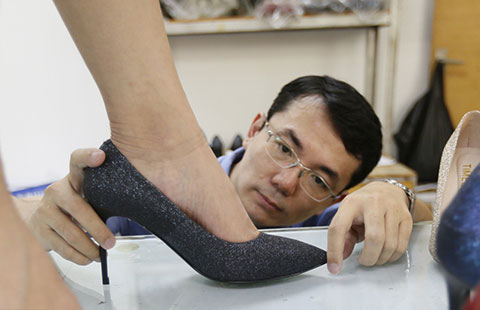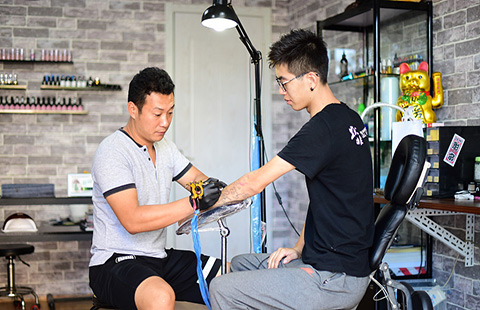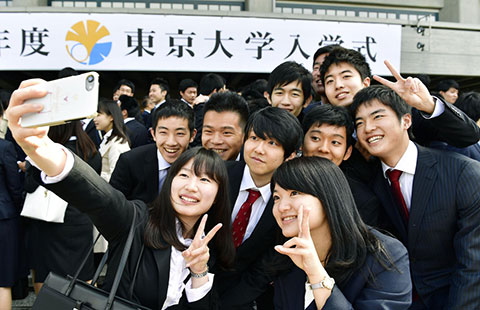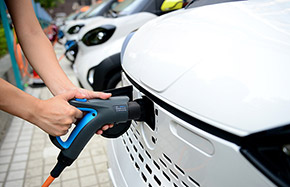AI will make robots smarter: Tech executive
Artificial intelligence has never been integrated so closely into robotics, as domestic competitors on the market are gearing up to be at the forefront in the race towards a smarter and more automated journey.
Wang Peng, vice-general manager at the marketing division of Shenzhen-based Qihan Technology Co, said as AI tackles learning, perception, problem-solving, logical reasoning and many other related issues, the new technology will absolutely make robots smarter.
"AI technologies can enable robots to mimic some level of human intelligence, such as the ability of perception and thinking. And the robot will be the best carrier for AI technologies."
"The AI-enabled robots are able to assist in humans' daily work, enabling people to spend their energies on more creative jobs, such as art and education."
With multiple patents in several fields, including robotics and AI, Qihan Technology focuses on the developing the commercialization of AI-enabled service robots. Founded in 2006, the company now aims to use next-generation robotics and AI technologies to improve quality of life and business productivity for consumers.
Wang said the company is working on expanding its portfolio of "robotics-as-a-service" solutions. Thanks to the open application program interface platform, the Sanbot robot, each priced around 79,800 yuan ($12,034) and powered by Qihan Technology, can be customized for different scenarios in many fields, including retail, hospitality, education and healthcare.
During the World Robot Conference held in Beijing last month, Qihan unveiled new intelligent, cloud-enabled robots called Sanbot King Kong. The 1.5-meter high robot features bionic arms, advanced navigation and is able to carry 75-kilograms. Equipped with a four-wheel drive system, the robot can move at up to five meters per second, exceeding the average human walking speed.
Since 2013, China has become the world's biggest market for robot applications. In the first half of this year, China produced 59,000 units of industrial robots, up 52 percent from last year, according to official data.
Qian Dongqi, chairman of the Suzhou-based Ecovacs Robotics Co said as a new era of AI is coming, there will be infinite possibilities to develop the robots.
"The AI technologies will enable more abilities for the robots, and the robots can provide the best application scenarios for the AI. And I believe a qualified robot must be equipped with AI."
Wang, from Qihan Technology, agreed, saying the company will work with more partners to build a better environment for developers and then enable more robot applications on the market.



















